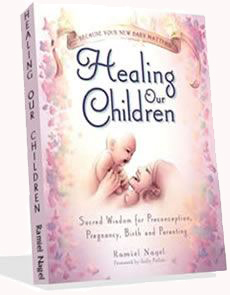Shortly after getting a positive pregnancy test, modern American families are flung into the midst of an ongoing battle regarding the future health of their children. For mothers who give birth in the hospital, one of the first things they will be asked to do is sign a consent form permitting the hospital to inoculate their newborn baby against a form of sexually transmitted hepatitis. Due to pressure from hospital staff, pediatricians, and social workers parents are often uninformed on the actual risks of vaccination and unaware of the fact that they do have the right to make an informed decision regarding when and if their child will be vaccinated.
The truth is that vaccinations are risky at best. Recently, talk show host, Dr. Ward Bond and homeopathic practitioner, Robert Scott Bell sat down to talk about the facts behind these dangerous vaccinations. You can see the results in the video below.
Vaccines operate as dangerous serums that set us on a path of dependence to pharmaceuticals for life by weakening our natural immunity and making us far more susceptible to illness. As a result, the vaccinated need to see the doctor more and require more antibiotics, so on and so forth.
There is substantial evidence to support the belief that vaccines set us on a path of destruction. Recent studies have shown that children who receive vaccinations have 200-500% more chronic illnesses in life than non-vaccinated children. Furthermore, recent outbreaks of common childhood illnesses amongst vaccinated populations show that these inoculations are not nearly as effective as we have been led to believe.
Simple biology provides us with a good deal of evidence against routine vaccination, especially when it comes to young children. Children have an immature immune system before the age of two. The use of vaccinations in children this young and with such a high level of doses alters the child’s natural immunity and neurological conditioning in a dangerous way.
Of the dozens of vaccines that children are routinely exposed to, four stand out from the crowd as being the most controversial. One of these is the polio vaccine, which uses an inactivated strand of polio to create an immune reaction in young children. Despite the fact that polio was once a widespread and dangerous disease, expert studies show that it was on the decline when the vaccination was introduced. As with the natural ebb and flow of epidemics, it likely would have faded out as more people became exposed and immune. Furthermore, even at its height most individuals who acquired polio showed no symptoms at all. Serious, paralytic illness was only found in around 1% of cases. There is a chance that the vaccination does not do anything to actually prevent polio, but instead we just developed a natural immunity as a society.
Another controversial vaccine due to heavy indications that ingredients used in its development may contribute to the dramatic increase in autism over the last two decades is the MMR shot. This combination shot is meant to prevent measles, mumps, and rubella. Children receive one dose soon after their first birthday, followed by two subsequent “boosters” in early childhood. The multiple shots are required since the child’s still-developing immune system will fight them off if not routinely exposed. Yet in a recent outbreak of mumps, over 70% of victims were previously vaccinated using this exact concoction. Though makers of the drug reluctantly admit a small failure rate, it is nowhere near 70%. Statistics like these certainly leave skeptics wondering if vaccinations of this type are of any value at all.
Yet another inoculation that is prescribed at birth, though there is no indication that it is necessary in the average American home is the hepatitis B shot. Though the odds of a child developing hepatitis B, a disease typically spread through dirty needles and promiscuous sex, as an infant are extremely rare, the vaccine is associated with a risk of irreversible brain damage in some children.
Finally, we come to the HPV vaccine. This vaccine is being heavily marketed all over the country right now as a way to prevent cervical cancer. Children as young as twelve years of age may obtain the HPV vaccine in certain parts of the country without their parent’s consent. However, it has been shown to have numerous dangerous side effects, such as chronic seizures, brain damage, and even death. Yet many researchers question if the virus is even inherently related to cervical cancer as the American people are being led to believe.
It is critical that parents study the dangerous side effects associated with common childhood vaccinations and carefully weigh them against the risk of disease. In many cases, you may come to find that a few weeks of chickenpox or the measles is a small price to pay when it comes to potentially avoiding a lifetime of debilitating neurological damage and illness.

















